|
Chairman's Update : December
2011
One of the biggest news items of the month occurred on Friday, December 9th, when we received the good news that the U.S. Supreme Court had decided to stay the implementation of the maps drawn by the federal three-judge panel sitting in Bexar County. For the rest of December prior to the holidays, we heavily turned our attention to dealing with the repercussions of the court's ruling. The majority of this month's update will be a full report on the details and timeline surrounding these activities. Following the Supreme Court stay, the San Antonio panel ordered all parties to the lawsuit to have a conference call and to determine if we could all come to an agreement for a recommendation to the court. There were a number of issues to be decided: how to move forward with filings, when and how to hold a primary, questions surrounding the State Conventions and numerous questions on how to alter or work around deadlines connected to these events. The Democrats originally suggested a unified primary in May. We could not agree to this because it was our opinion that such a late primary would make it impossible for the parties to hold their State Conventions as scheduled in the first week of June. The idea of some form of primary being held in April was floated but nothing could be agreed to at that time. With no agreement being reached, the court scheduled a hearing on December 13th to deal with these issues. On very quick notice, the RPT hired Andy Taylor - an election law and redistricting expert - to help us beef up the Party's legal team to deal with these issues at this hearing. As a bit of background, this hire was necessitated in part because the Attorney General's request for a stay outlined a possible path forward in the event that the Supreme Court granted that motion. That path included a split of the election process - two primaries - with one primary occurring on March 3rd as originally scheduled for all races not affected by redistricting, and a second primary in late May for the races which are affected by redistricting.
At the hearing, I had our legal team call me as a witness so I could explain the concerns of the Party. I made the three-judge panel aware that under the Election Code, state parties are required to hold State Conventions in either June or July, at which national convention delegates would be selected as well as party officers and the adoption of the state platform. I pointed out that the Election Code requires there to be precinct conventions held in connection with the primary, and then further calls for subsequent county/district conventions. These requirements necessitate that some sort of primary be held early enough to allow both state parties to have time to complete the delegate selection process, organize the delegates for the convention, and have time to hold committee meetings (such as credentials) prior to the first week of June when the State Convention was scheduled to start.
I did so because at that time, it was not entirely clear that a schedule could be agreed upon to allow a realistic chance of a single unified primary in April. It would be a shame to force our Presidential primary later in the calendar only to later determine that we had to have a split primary anyway. When questioned by the Democratic lawyers, I also noted in response that there was a diversity of opinion among party leadership and elected officials as to whether it would be better to have a split primary or a single unified primary. I testified this way because I had received feedback from numerous legislators and concerned party leaders advocating different ideas. Some wanted a single unified primary at a later date. Some wanted to have a split primary with just the Presidential primary in March and all the other races later. Some wanted a split primary with the Presidential and all the statewide races in March and all the other races later. And finally, some wanted a split primary with the Presidential and all races not affected by redistricting in March, and a primary for the affected races to be held later.
Consequently, over the next several days the Republican Party of Texas negotiated directly with the Texas Democratic Party to come up with a solution. With agreement from multiple other plaintiffs' groups, we were able to agree on a schedule for a single unified primary on April 3rd. All the parties submitted a recommended order setting an April 3rd unified primary along with agreed-upon dates and deadlines, and the panel signed the order on December 16th. See our previous recap here.
At that point, the federal panel will have basically only two options. 1) If the delay is a short one (say a week or so) the panel can consider moving the unified primary to a later date in April, although that will be difficult to do and still allow the parties enough time to complete the process for delegate selection to the state convention. 2) Or, the panel will have to split the primary into two elections after all - with one primary being on April 3rd and the second being at a later date that is dependent upon how quickly new lines can be drawn. One thing I need to reiterate to everyone - from my point of view, there is no choice but to have two primaries if you do not have the new Congressional, State House and State Senate lines in time to have an early April primary. There has to be a primary for at least some races by early April, in order to have the two parties' state conventions. Cancelling the state conventions is not an option for several reasons. First, the already incurred contractual obligations of the parties would jeopardize the financial health of both parties. Second, it is important that the State of Texas be able to pick delegates to the Republican National Convention so that we can have an impact on the Presidential race. Texas has the second largest delegation to the National Convention with 155 delegates. Third, the Texas Election Code requires that we have a state convention. And fourth, we need to have elections for party officers, including State Chairman, Vice-Chairman, National Committeeman and Committeewoman, and the members of the State Republican Executive Committee. It is the Republican Party of Texas' position that a single unified primary in May makes it impossible for the State Party to hold its state convention in June - there simply is not enough time. As you can imagine, we've received a number of questions on this process. One of the most common questions asked is why all the filing deadlines were extended, and not just those for the races affected by redistricting. The reason is two-fold. First, the races not affected by redistricting lines have a potential effect on the races which are affected by redistricting lines. The reason being, once the lines are drawn, candidates from these affected races may decide that they do not want to run for those races, but feel instead that they wish to become a candidate in some other race which has not been affected. Conversely, after the redistricting line are issued, there may be a candidate who already plans to run for office in an unaffected race but decides they would rather run for one of the new races after viewing the finalized lines. The Election Code does not allow the withdrawal and refiling of applications for races, so in order to address this problem, the only solution is to extend the deadline for all races and to also allow the withdrawal of filings - which the Court ordered be done. In short, the races not affected by redistricting are inter-connected and potentially affected by the races which are involved in redistricting. The second reason the deadlines have to be extended for all the races is to avoid voter and worker confusion over two separate filing periods. As we have already seen, the situation has become confusing enough under the current schedule without adding yet another layer of deadlines and difficulty. We have also received feedback that some county clerks are concerned that the schedule is too tight and too difficult. The truth of the matter is - it is very tight and will be very difficult. However, the schedule has to be tight in order to accomplish an early April primary. As noted earlier, if you had a looser schedule and a later date, you could not have a single unified primary because of the state conventions. The long and short of it is that there was no good alternative to solve the problem of how to plan for a primary when we don't have maps yet for Congress and the State Legislature. I negotiated what I thought to be the least problematic solution from among several flawed alternatives. It should be pointed out that even if we meet this schedule, that the Republican Party of Texas will face challenges it has never faced before. This year we have the largest number of delegates and alternate spots ever available at approximately 18,000. This will make us among the largest (if not the largest) political convention in the world in 2012. Yet even under the best of circumstances the State Party will have one month less to make arrangements for the delegates and alternates selected. I am told that in the past, it has always been a scramble and a difficult task to get everything done for state conventions in June when the primaries are in March. If we have a primary on April 3rd this year, and a state convention on June 7-9, this will provide us approximately five weeks less time to do more work as compared to the last state convention when the primary was the first week of March and the state convention was the second week of June. I know it is frustrating to our candidates, party leadership and grassroots workers that we do not have our normal degree of certainty as to where districts will be, who will be running, and what dates we will vote. This is frustrating to me and the party staff as well. It is an extremely difficult and somewhat chaotic situation. Be assured, that the staff and I are doing our best to respond to every inquiry and adjust to every new development. Please have some patience with us knowing that we are in uncharted territory and facing a very, very difficult and challenging situation. I suspect that the majority of both my and the staff's time will be focused on trying to work through the issues relative to the primary and state convention. On a positive note, we have been moving forward with additional meetings relative to our Victory 2012 organization. We have been in regular contact with our statewide Victory chair, Harris County Judge Ed Emmett and we hope to provide you with an exciting update on Victory 2012 shortly. I can tell you now, that I believe we are well ahead now of where we were at this time two years ago and I am optimistic that we will have a robust election effort. I am also pleased to report that we ended the year with over a million dollars cash on hand, and paid all of our bills down to zero as usual at the end of the year. Some of the money on hand are primary funds for the county parties, and some of the money is in dedicated accounts. We did end the year with around $600,000 in useable funds, which is not too bad for an off-election year, and is the second consecutive year that we have ended the year with no monies owed and approximately $600,000 or more in usable funds.
December was also a very hectic month at the office as we had a flood of candidates come by the office to file. The filing period was particularly challenging for our staff since a stay was placed on the maps in the middle of the filing period, forcing us to suspend filing for a period of days. The court later re-opened and extended the filing date for all offices - I am proud that our staff handled the confusion and deluge of inquiries with a great deal of patience and that we were able to accommodate all of the filers. We have placed a posting on our website of all the candidates that have currently filed. We expect that there may be some additional candidates, as well as some candidates that may withdraw their filings once the courts issue a final ruling on the district lines. In closing, I hope everyone had a joyful holiday season. It is now time for us to all get back to work, ready to wage battle for our Party and our candidates in 2012 to reclaim the White House and protect our gains in Texas! Thank you for your support.
Steve Munisteri, Chairman, Republican Party of Texas
|

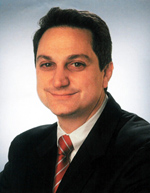 We
kicked off December with our quarterly SREC meeting here at RPT
headquarters in Austin -
We
kicked off December with our quarterly SREC meeting here at RPT
headquarters in Austin - 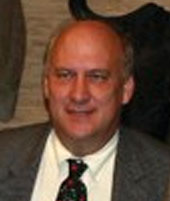 Republican County Judge Dan Burkeen, who also
happens to be one of my good friends dating back to our college years as
members of the College Republicans and Young Conservatives of Texas. Dan
and I also practiced law together for a number of years in Houston. From
all accounts, Judge Burkeen is doing an excellent job administering the
county! The next day I traveled to Dallas to meet with potential
contributors and then it was back to Austin for a statewide teleconference
with Republican leadership. Also during December, I was very pleased with
the participation that we had on our December 15th Grassroots Club
statewide teleconference. The lunchtime phone conference had a great
number of participants and some excellent questions for discussion - if
you haven't signed up for the
Republican County Judge Dan Burkeen, who also
happens to be one of my good friends dating back to our college years as
members of the College Republicans and Young Conservatives of Texas. Dan
and I also practiced law together for a number of years in Houston. From
all accounts, Judge Burkeen is doing an excellent job administering the
county! The next day I traveled to Dallas to meet with potential
contributors and then it was back to Austin for a statewide teleconference
with Republican leadership. Also during December, I was very pleased with
the participation that we had on our December 15th Grassroots Club
statewide teleconference. The lunchtime phone conference had a great
number of participants and some excellent questions for discussion - if
you haven't signed up for the 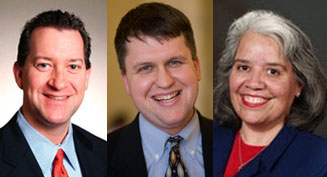 Immediately prior to the December 13th hearing, the Attorney
General's office informed the State Party that they would not be
advocating for any particular solution in front of the panel.
Consequently, in order to ensure that Republican interests were made known
to the panel, the RPT added Andy Taylor to assist our volunteer assistant
general counsel Eric Opiela, as well as our retained
counsel Donna Davidson. I would like to note a special
thanks to Eric Opiela, who has donated countless hours of legal time and
assistance to representing the Party, as well as a thank you to Donna
Davidson who discounted her rates by 50%, and Andy Taylor who discounted
his rates by 20%. This helped reduce the Party's legal obligations down
into the tens of thousands instead of a number which would have definitely
reached into the hundreds of thousands.
Immediately prior to the December 13th hearing, the Attorney
General's office informed the State Party that they would not be
advocating for any particular solution in front of the panel.
Consequently, in order to ensure that Republican interests were made known
to the panel, the RPT added Andy Taylor to assist our volunteer assistant
general counsel Eric Opiela, as well as our retained
counsel Donna Davidson. I would like to note a special
thanks to Eric Opiela, who has donated countless hours of legal time and
assistance to representing the Party, as well as a thank you to Donna
Davidson who discounted her rates by 50%, and Andy Taylor who discounted
his rates by 20%. This helped reduce the Party's legal obligations down
into the tens of thousands instead of a number which would have definitely
reached into the hundreds of thousands.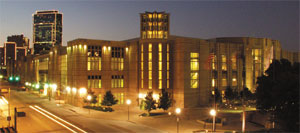 I
further explained to the panel that it was virtually impossible to change
the date of the convention because we have 18,000 delegates and alternates
spots at our State Convention. Very few locations in the state can
accommodate such a large number of people and also provide sufficient
hotel rooms, and these locations generally have to be lined up several
years in advance. I also testified that the Republican Party of Texas had
already signed numerous contracts with the hotels as well as the Fort
Worth Convention Center, obligating the Party to guarantee hotel rooms and
lease the convention facility. Because it is an absolute necessity that a
primary be held early enough to accomplish hosting the 2012 State
Convention, and for the further reason that it is not a certainty that the
Supreme Court will issue a ruling in time to allow there to be a primary
for the Texas House, Texas Senate and Congressional races by early April -
I floated the idea that two primaries be considered.
I
further explained to the panel that it was virtually impossible to change
the date of the convention because we have 18,000 delegates and alternates
spots at our State Convention. Very few locations in the state can
accommodate such a large number of people and also provide sufficient
hotel rooms, and these locations generally have to be lined up several
years in advance. I also testified that the Republican Party of Texas had
already signed numerous contracts with the hotels as well as the Fort
Worth Convention Center, obligating the Party to guarantee hotel rooms and
lease the convention facility. Because it is an absolute necessity that a
primary be held early enough to accomplish hosting the 2012 State
Convention, and for the further reason that it is not a certainty that the
Supreme Court will issue a ruling in time to allow there to be a primary
for the Texas House, Texas Senate and Congressional races by early April -
I floated the idea that two primaries be considered. It became apparent throughout the course of the day as county
clerks and elections administrators testified and the panel received
feedback from around the state, that holding two primaries would mean
extra cost to taxpayers at the state level and also locally. Clerks from
some of the smaller counties testified that they would be forced to
consider laying off small town municipal workers such as police and
firemen in order to fund a second primary. Other witnesses testified that
two primaries would lead to voter confusion, voter fatigue, worker fatigue
and logistical problems. After disseminating this information among our
party's state leadership and elected officials, a consensus developed that
it would be best to save taxpayer money by having a single unified primary
if, and only if, a realistic schedule could be agreed to with the
Democrats that had a significant chance of actually accomplishing a single
unified primary.
It became apparent throughout the course of the day as county
clerks and elections administrators testified and the panel received
feedback from around the state, that holding two primaries would mean
extra cost to taxpayers at the state level and also locally. Clerks from
some of the smaller counties testified that they would be forced to
consider laying off small town municipal workers such as police and
firemen in order to fund a second primary. Other witnesses testified that
two primaries would lead to voter confusion, voter fatigue, worker fatigue
and logistical problems. After disseminating this information among our
party's state leadership and elected officials, a consensus developed that
it would be best to save taxpayer money by having a single unified primary
if, and only if, a realistic schedule could be agreed to with the
Democrats that had a significant chance of actually accomplishing a single
unified primary.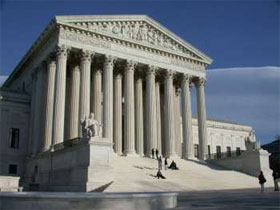 It is very important to note that there is no certainty that a
single unified primary on April 3rd can be accomplished. In order for the
April 3rd date to be achieved, we will have to have a ruling from the
Supreme Court within a week or two from today's January 9th oral
arguments. The three judge panel in San Antonio will then have to issue
new maps by the end of January, in order to stick to the proposed schedule
which cuts off filing on February 1st, and allows for a short, re-opened
filing period prior to that deadline. In the event that either the Supreme
Court does not rule in time, or the three-judge panel cannot complete the
maps in time, then the April 3rd date cannot hold.
It is very important to note that there is no certainty that a
single unified primary on April 3rd can be accomplished. In order for the
April 3rd date to be achieved, we will have to have a ruling from the
Supreme Court within a week or two from today's January 9th oral
arguments. The three judge panel in San Antonio will then have to issue
new maps by the end of January, in order to stick to the proposed schedule
which cuts off filing on February 1st, and allows for a short, re-opened
filing period prior to that deadline. In the event that either the Supreme
Court does not rule in time, or the three-judge panel cannot complete the
maps in time, then the April 3rd date cannot hold.
